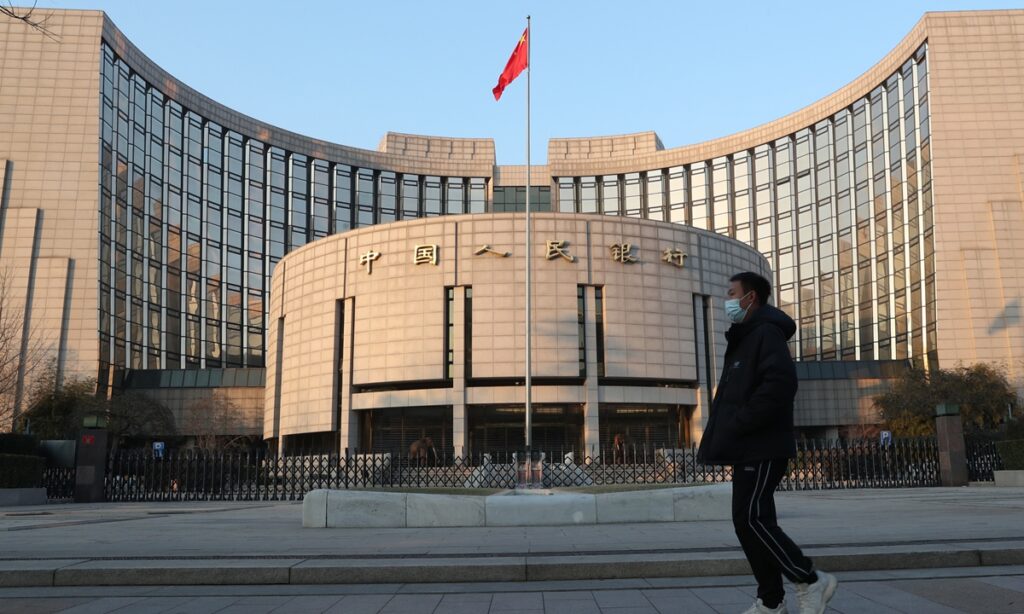The latest measures came as Chinese policymakers have in recent months taken a flurry of moves to boost the private sector, which plays a crucial role in the country’s economic development, as part of a broader effort to boost the economic recovery amid serious downward pressure.
The measures further demonstrate the country’s unwavering support for private businesses and will help boost confidence of entrepreneurs and ensure sound development, businesses and experts said on Monday.
In a joint notice, the People’s Bank of China (PBC), the central bank, the National Administration of Financial Regulation, and several other central government agencies said they have introduced 25 specific measures to support the private economy.
The notice highlighted the need to continuously ramp up credit lines to support the development of the private economy, such as increasing the quota for first-time loans and other loans, actively engaging in all types of financial services to industrial and supply chain, and proactively ensuring seamless funding services for the sector.
Banks and other financial institutions are encouraged to meet the financing needs of private enterprises that encounter temporary difficulties but have marketable products, promising projects, and competitive technology in accordance with market-oriented principles, and should not “blindly halt, withdraw or cut off” their loans, according to the notice.
Boosting confidence
The measures offered another boost for confidence among private businesses, as they are keen to learn about how the policies will benefit them.
Ding Yandong, general manager of Rollmax Shutter Component Co, a Ningbo-based roller shutter component manufacturer, said that the new measures will be very helpful for the company and some banks have already been reaching out to the company to offer low-interest rate loans and other services.
“In terms of financing costs, it has been very good and might be the best in recent years,” Ding told the Global Times on Monday, noting that other supportive measures such as tax cuts have also been very helpful for the company.
“I’m really interested in the 25 measures and I’m hoping to benefit from them. A slew of policies for the private economy this year has greatly supported our businesses,” Xu Lingji, who owns an electric instrument set company in Hangzhou, East China’s Zhejiang Province, told the Global Times on Monday.
Specifically, Xu said, lowered mortgage loan interest rates, a policy that was released previously, have given the company more confidence to expand its businesses. “Having an easier financing channel will greatly boost our business, and the lower interest rate will make us even more confident in borrowing.”
China has issued a series of measures to support the private sector in many aspects, including improving the business environment and increasing financial support. In July, authorities issued a 31-piont guideline to boost the growth of the private economy, promising to improve its business environment. In August, Chinese ministries announced 28 supporting measures, vowing to provide fair access for private firms to participate in major national projects and technological undertakings.
Some central government agencies and many local government agencies have also taken their own moves to help private businesses in many areas. The National Development and Reform Commission, the top economic planning agency, for example, have set up a bureau to coordinate policies for the private economy.
The most important aspect of the notice released on Monday is that it sets clear targets and crucial areas to guide banks and other financial institutions to offer sustainable financing for private businesses. The notice asked banks and other financial institutions to set annual services targets, increase the weight of serving private enterprises in annual performance appraisal and increase the proportion of loans to private firms.
“The measures can ensure the cash flow of private enterprises and support the operation and expansion of small and medium-sized businesses. At the same time, it also boosts the confidence of small firms, encourages investment, and guide them toward research and development,” Hu Qimu, a deputy secretary-general of the digital-real economies integration Forum 50 who follows China-US trade ties, told the Global Times on Monday.
Amid global downward pressure, private businesses have been facing some serious challenges, which has affected private investment. Between January and October, private investment fell 0.5 percent year-on-year, though the decline narrowed, according to latest official data. Private investment was significantly affected by difficulties in the real estate sector, as private investment in projects excluding real estate projects actually grew by 9.1 percent year-on-year.
The notice on Monday said that more efforts should be made to implement relevant government policies extending financial support for the real estate sector, maintain the stability of key financing channels such as credit lines and bonds, and reasonably meet the financial needs of privately-own property developers.
While some foreign media outlets have been hyping claims about China’s support for private businesses, Chinese policymakers have repeatedly and unequivocally shown unwavering support for the private sector, which plays a crucial role in China’s overall economic development. The private sector accounts for about 60 percent of China’s GDP and 80 percent of urban employment.
Dong Shaopeng, a senior research fellow at the Chongyang Institute for Financial Studies at the Renmin University, said the measures are aimed at helping private businesses tackle challenges, which is also part of the country’s effort to boost overall economic recovery.
“The development of the private economy faces some difficulties due to market cyclical and other factors. Therefore, guiding and encouraging institutions to support the development of the private economy and weak areas will restore economic growth,” Dong said.




